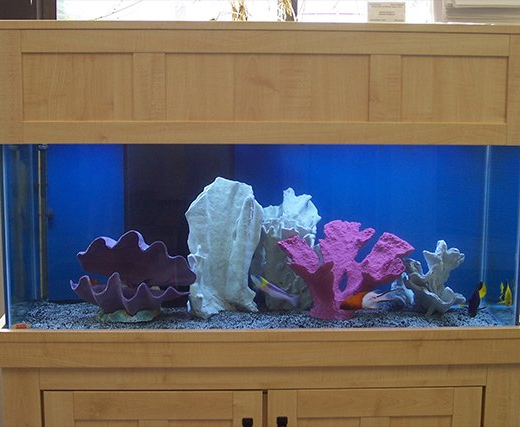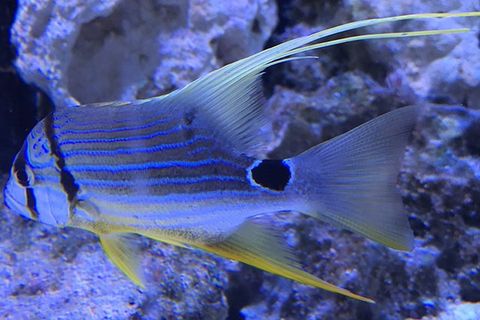Aquarium Benefits
Educational Benefits of Aquariums for Children
Did you know aquariums are also an excellent hands-on teaching tool in the classroom or at home? Establishing an aquarium offers students of all ages the opportunity to learn directly through experience. Caring for the aquarium kindles a sense of responsibility, achievement, and a genuine desire to learn. Teachers and parents are given a unique opportunity to teach a receptive audience in a fun and interactive manner.
Consider setting up a special “teaching aquarium” in a classroom or home to help encourage and develop an interest in reading, writing, critical thinking, and science.
Reading
Reading is an essential part of our everyday lives. Students will enjoy researching topics such as fish species, plants, or reefs to learn more about aquarium keeping. Who has not heard of the “selective” reading habits of children who only read books on topics of interest to them? The wide variety of aquarium-related topics can help foster good reading habits in children who may not otherwise be interested in reading.
Science
Biology, chemistry, ecology, and physics are just a few of the sciences involved in aquarium keeping. A classroom aquarium can be used to teach students about specific topics such as fish anatomy or more complex topics such as the food chain, the water cycle, or the nitrogen cycle.
Writing
Students can be asked to write reports or daily journal entries about the classroom aquarium. Students can also write letters to fish or aquatic experts with their questions. Both are great ways to help sharpen grammar and writing skills.
Bringing Children and Parents Together
An aquarium is a fun, educational tool that parents and children can enjoy together. Students not only develop learning skills but because they get excited about their aquarium, are eager to share what they learned with family members and friends. Involved parents are more likely to participate in other school activities with their child.
Setting up a teaching aquarium is a great way for students of all ages to learn about a variety of topics and gain valuable life lessons. However, the decision to set up an aquarium should never be done on a whim. Carefully evaluate the amount of time, effort, and finances you will be able to commit to the aquarium and its inhabitants. Patience and proper research are key to a successful aquarium.
Developing Critical Thinking and Problem-Solving Skills
Students collect data from an aquarium by measuring and recording water temperature, pH, ammonia, and nitrate levels. Chart or graph the information and look for trends that coincide with events in the aquarium. Any event, even the loss of a fish, is an opportunity to discuss possible causes and their effects, preventions, and ways to improve existing conditions. The teaching and learning opportunities are endless.
Benefits of Aquariums for Adults
Research has been conducted that shows that aquarium watching will reduce stress levels in adults, reduce hyperactivity in children and has even helped with Alzheimer patients, calming them and encouraging them to eat more at meal times. People suffering from high blood pressure have benefited from watching an aquarium on a daily basis.
Research has also shown that to get maximum benefit from an aquarium it does need to contain fish as well as plants and companies are now setting up different therapeutic tanks to help with different conditions choosing slow moving fish that move in groups to calm distressed patients and fast moving fish with bright colours to help lift the mood of depressed or severely ill patients.
In other studies it has been found that watching a freshwater aquarium significantly reduces stress in dental patients who are undergoing treatment and significantly reduces the amount of pain medication needed in that treatment and a number of studies have shown that people who look after and care for aquariums are at significantly lower risk of high blood pressure and stress related illness.
Benefits of Professional Aquarium Services
The benefits of hiring an aquarium maintenance company are that you don’t have to worry about if you’re doing it right. You know a skilled professional is keeping an eye on your aquarium for you. All you have to do is feed the aquarium and in some cases, that can even be done with an automatic feeder for freshwater tanks!
Every tank is unique, so maintenance schedules vary from once a week to every three weeks. It all depends on the specific aquarium. Aquarium Services Corp. will work with your schedule to ensure your personal system is getting the attention it needs.





